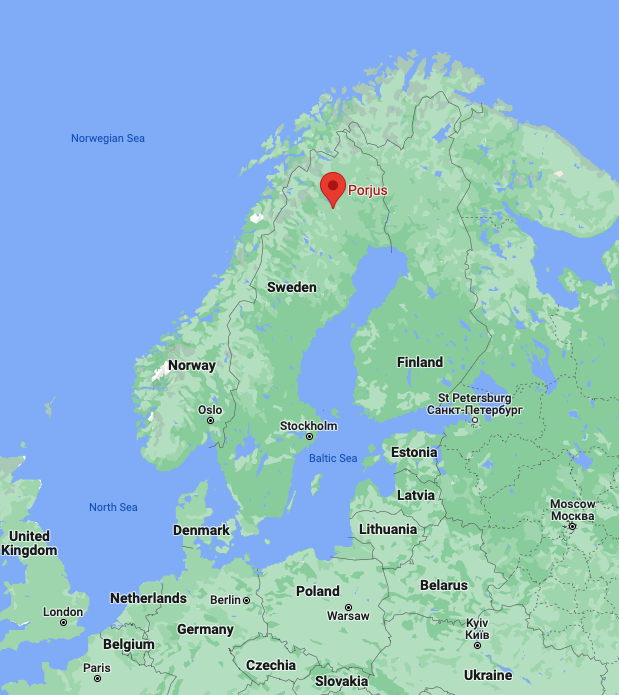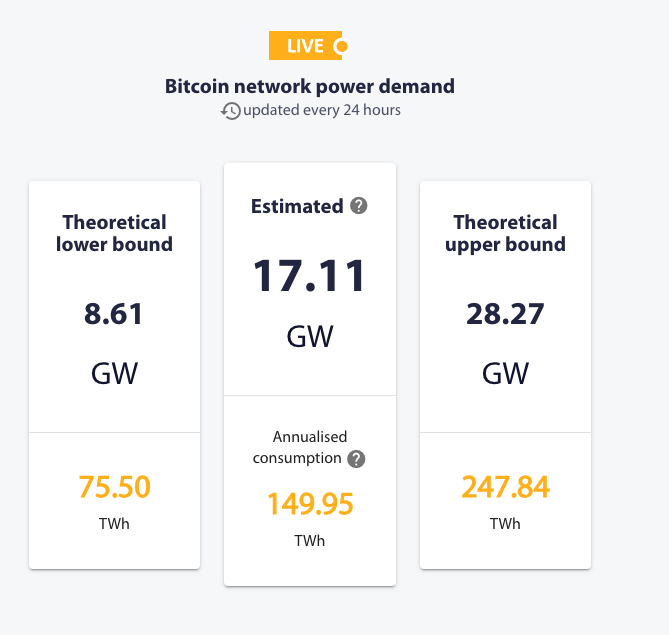Sweden has welcomed a hydro-powered Bitcoin (BTC) mining data center.
Genesis Digital Assets Limited (GDA), a mining and data center company with over 400 MW of power generation worldwide has made a opened a new data center in Sweden, driven by the country’s burgeoning renewable energy surplus.
The new operation is located in the far North of Sweden, where hydroelectric power dominates the grid. Abdumalik Mirakhmedov, executive president and fouder of GDA, told Cryptox that the new data center is located near the Porjus Hydroelectric Power Station:
“Given the proximity to the hydroelectric power station, we expect all of our electricity consumption to be powered by renewable energy.”
The total capacity of the data center is approximately 8 MW and is expected to result in a hash rate of approximately 155 PH/s (peta hashes per second). GDA explained to Cryptox that there are 1,900 Bitcoin mining machines deployed in the Porjus data center.
As reported by Jaran Mellerud, a Business Developer at Luxor Mining, and a frequent Cryptox contributor, Sweden produces almost all of its electricity from nuclear and hydropower, particularly the north.
Mellerud, who hails from nearby Norway, explains that renewable energy is also abundant:
“Sweden is an electricity powerhouse, generating the fifth-most electricity per capita globally in 2021.
GDA’s strategic expansion is part of a broader trend in the Northern European Bitcoin mining landscape. Christian Anders, the founder of BT.CX, a Swedish Bitcoin exchange dating back to January 2012, told Cryptox that Bitcoin mining is not very common due to high energy prices.
However, the Nordics are a class apart, Anders told Cryptox:
“Sweden, Finland, and Norway have a surplus of energy and negative energy prices from time to time, and primarily renewable energy in the form of hydropower in a remote location which is hard to distribute.”
Untapped, stranded, and renewable energy are popular ingredients for Bitcoin mining as they tend to be the cheapest. Mirakhmedov explained, “Sweden also has abundant clean energy sources, which is an important factor we consider in our operations.”

Moreover, while sentiment among some Scandinavians is negative towards Bitcoin, Anders told Cryptox that energy companies are coming around to Bitcoin mining’s utility: “The CEO of the largest energy producer in Sweden, Vattenfall, is pro-bitcoin mining, and its use case for grid balancing.” Stabilizing electricity grids with Bitcoin miners is also growing in the United States.
Tim Carra, the head of Nordic at GDA, expounded the point in correspondence with Cryptox:
“With abundant energy sources, a pro-innovation environment, and a strong educational system that results in a great culture of innovation, we believe that Sweden is one of the best countries in the world where to mine bitcoin and expect to further invest in this beautiful region moving forward.”
GDA concentrates the majority of its power generation in Texas: one facility consumes 300 MW of electricity. The new Swedish operations complement a new GDA facility in South Carolina and demonstrate that there are still some attractive and untapped potential mining destinations around the world. Anders chimes in:
“There is also a market opportunity in Spain/Portugal which gets cheap energy from Africa and its domestic solar production where prices also are very cheap from time to time. BT.CX is working with renewable bitcoin miners to offer a way to offset your bitcoin holdings.”
As Anders alludes to, the generation of new Bitcoins consumes considerable amounts of electricity. The European Central Bank reports that Bitcoin mining has a significant carbon footprint.

However, portrayed as an energy-guzzling and carbon-intensive industry, Bitcoin mining consumes just 149.95 Terawatt hours of electricity per year, or less than 0.7% of global energy, according to the Cambridge Center for Alternative Finance.
Related: Tether invests in El Salvador’s $1B renewable energy project
Meanwhile, renewable energy including hydro continues to dominate the global bitcoin mining energy mix. Neighboring Norway, for example, contributes roughly 1% of the Bitcoin hash rate and is 100% renewable, while the new GDA installation in Sweden is another green energy Bitcoin miner.
Ultimately, Anders concludes, “It’s super cool that more miners are coming to the Nordic European countries to help us with this mission.”
Magazine: Bitcoin is on a collision course with ‘Net Zero’ promises




